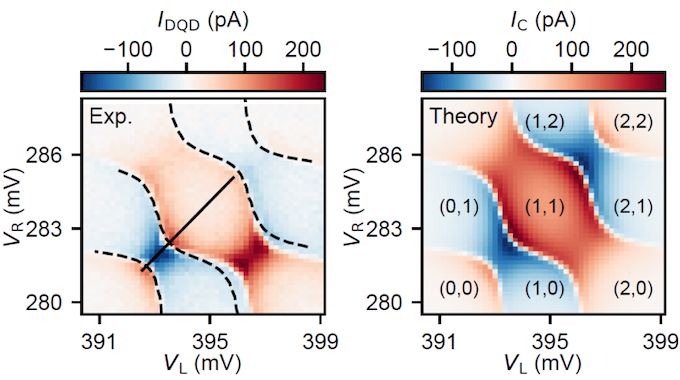
STSM of Andras Pali at TU Delft and TNO: Engineered topological superconductivity
The purpose of the stay in January 2019 was to kick-start an efficient theory-experiment collaboration that aims to establish engineered one-dimensional topological superconductors based on quantum-dot chains. During the stay there were ongoing experiments in the group of the host (Attila Geresdi, then at TU Delft, now at Chalmers University), aiming to measure the current-phase relation of a double quantum dot embedded in a Josephson junction. During the stay, we identified and started to utilize theory tools to describe the experiment.
The visit established a fruitful research collaboration, resulting in a joint experiment-theory manuscript submitted in August 2020 for publication, “Triplet-blockaded Josephson supercurrent in double quantum dots”, https://arxiv.org/abs/2008.04375, authored together with colleagues from Copenhagen. Our manuscript focuses on a spin-dependent effect in a Josephson junction with an embedded, serially coupled double quantum dot. Two electrons occupying the double quantum dot can occupy a spin-singlet state or a spin-triplet state, and our work describes the effect that the Josephson current through the junction is much weaker if the electrons occupy the triplet state.
Our results highlight a novel coupling mechanism between spin-based singlet-triplet qubits and superconducting circuits, a previously less explored spin-to-current conversion which could complement the well-established spin-to-charge conversion in the spin-qubit toolbox. Our work also showed that simple effective models can provide a satisfactory description of multi-dot systems coupled to superconductors, giving hope that such hybrid setups will enable engineered topological superconductivity.
